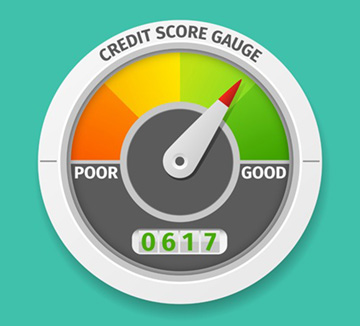 Are you hoping to buy a new home in 2020? Then you probably already know how important your credit score will be when applying for a home loan. Your score will help determine the terms you’ll get on a mortgage – the better your score, the better the terms will be. Having a great credit score can literally save you thousands of dollars on your home purchase. So how do you make sure that your credit score is as good as it can be? Here are some tips to help you improve your credit score before you shop for a home.
Are you hoping to buy a new home in 2020? Then you probably already know how important your credit score will be when applying for a home loan. Your score will help determine the terms you’ll get on a mortgage – the better your score, the better the terms will be. Having a great credit score can literally save you thousands of dollars on your home purchase. So how do you make sure that your credit score is as good as it can be? Here are some tips to help you improve your credit score before you shop for a home.
Know what to aim for
You need a good credit score to buy a home – but what number should you aim for? If you’re applying for an FHA loan, you’ll need a score of at least 500 to qualify. But be aware that you’ll need a down payment of at least 10 percent if your score is that low. To qualify for 3.5 percent down, you need a score of at least 580. With other types of loan, such as VA, USDA, and conventional loans, you’ll need a score of at least 620. You’ll begin to qualify for the most favorable rates if your score is at least 670. Remember – the higher the score, the better.
Correct mistakes on your credit report
Several months before you apply for a home loan, you should obtain a copy of your credit report. Some consumers find out that they have errors on their reports, and you will need time to have them removed. Alert the credit reporting company about the error and include supporting documents. Send all correspondence by certified mail with return receipt requested. The credit reporting companies must investigate your claims within 30 days. If they do discover that there is an error, they must alert the organization that provided the information. They must then inform all three nationwide credit reporting companies. This process can take several weeks or months, so the earlier you begin, the better.
Make regular payments
If you want to improve your score, then don’t make any late payments on your credit cards or loans. You’ll not only incur fees on your credit cards for late payments, but they will also negatively impact your score. If possible, pay down the balances on your credit cards and loans as well. Make more than the minimum payments whenever possible, and aim to keep your balances below 50 percent of your available credit.
Don’t take out new loans
Now is not the time to make large purchases. Don’t buy a car or open any new lines of credit. And wait to buy vacations, large appliances, and any other expensive items until after you’ve closed on your home. When lenders see big changes in your recent credit history, it can be a red flag.
Don’t close any accounts
Finally, if you’ve managed to pay off a credit card or loan – congratulations! It can feel very good to get your finances under control before buying a home. But wait to close those paid off accounts until after you’ve closed on your new house. Closing an account will affect the ratio of your existing balance to your available credit, which can also be a red flag.


